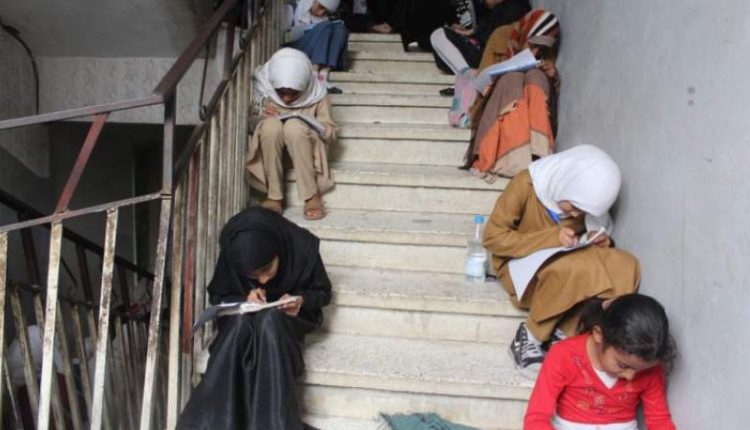New Book: There Is More into Yemen than Terrorism, Political Violence
In a new book, Helen Lackner argues that current perception about Yemen has led to skewed aid along military lines —not the kind the country really needs.
“Responsible Statecraft” website published a book by researcher Helen Lanker, in which she wrote about Yemen by saying “There is more to Yemen than terrorism and political violence.” Helen Lackner, a Research Associate at SOAS University of London and expert on Yemen, where she lived for more than fifteen years, presents in her latest book, Yemen: Poverty and Conflict, a succinct, 184-page account of Yemen’s modern history.
Although the volume is conceived as an introductory work, Lackner offers analytical insights that will benefit readers who are already familiar with Yemen’s story.
The jubilation of Yemenis upon the unification of the country in 1990, explains Lackner, would only be matched by the broad enthusiasm for change that eventually led to the downfall of Yemen’s President Ali Abdullah Saleh in 2011. The new Republic of Yemen established in 1990 was dominated by a group of Northern elites with Saleh — who had already been the leader of the Yemen Arab Republic since 1978 — at the state’s helm. In her analysis of Yemen’s economic situation during the two decades after unification, Lackner argues that the neoliberal direction of the new government “contributed to a gradual serious deterioration of living standards.”
The World Bank and the IMF contributed to this trajectory, explains the author, but, within Yemen, there was also the widespread perception that the public sector was deeply corrupt.
During the 2000s, Saleh proved skillful at exploiting the Bush administration’s focus on the so-called “War on Terror” to secure weapons and equipment for his elite military units. Saleh presented himself to Washington as an anchor of stability that would prevent the growth of jihadism in Yemen after the bombing of the USS Cole by Al-Qaeda off Aden’s coasts in 2000 and the 9/11 attacks the following year.
Saleh’s machinations furthered an already existing problem: the world too frequently sees Yemen through a securitized and simplistic lens. As Lackner remarks, “Yemen is often mentioned as a hotbed of terrorism and the ancestral homeland of the most notorious jihadi, Usama bin Laden.”
This helps explain why, as the author ruefully observes, most of the “aid” Yemen traditionally received from the major world powers was focused on “security” and counterterrorism instead of the country’s very serious socioeconomic and environmental problems. As a result, “most support actually, if indirectly, contributed to the country’s instability and worsening poverty.”
Yemen was receiving small volumes of development aid in comparison with similarly poor countries before the civil war broke out in 2014. By now, humanitarian assistance has almost completely eclipsed any form of development aid. While humanitarian aid is crucial in saving lives, Lackner notes, “it is only through development funding that individuals, households and communities can liberate themselves from dependence and gradually recover their self-sufficiency.”
Moreover, even the humanitarian response to the Yemen crisis has been severely underfunded. In the March 2022 Yemen Pledging Conference, world leaders pledged only 30 percent of the total funds needed to avert a further deterioration in the country’s already desperate humanitarian situation, often described by the United Nations as the “world’s worst.” In the preceding years, the volume of funds for Yemen had already decreased.
European countries have provided weapons and diplomatic support to the Saudi-led coalition while the United States has gone beyond this by assisting the coalition’s airstrikes in Yemen that have resulted in the death of thousands of civilians
As to the environmental crisis, Lackner — who has paid much-needed attention to the topic in her research over the years — argues that “water management is by far the country’s major long-term problem, threatening its very existence.” During the last decades, irrigated agriculture has become widespread in Yemen, and this has resulted in the depletion of water tables, especially in Western Yemen where most of the population lives. The author suggests “improving rain-fed subsistence and cash-crop potential” as a possible way forward, but, as she notes, water management is not simply a technical issue but depends on politics.
Other experts have proposed the introduction of new plant varieties and the revitalization of rain-fed terraces that have not been properly maintained. These changes would leave Yemen in a better situation to deal with the increasing frequency of extreme weather events due to climate change.
Source: Responsible Statecraft website

